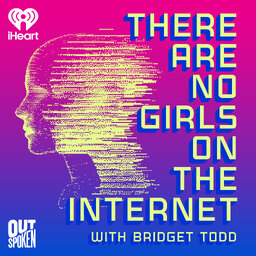Whitney Houston: The Zombification of an Icon
A hologram of the late Whitney Houston is doing a residency in Las Vegas. Spirituality writer Brooke Obie asks what this means about celebrity, greif, and technology.
Read Brooke's piece The Zombification of Whitney Houston: https://www.refinery29.com/en-us/2021/11/10725817/whitney-houston-hologram-tour
Read Deepfakes, dead relatives and digital resurrection: https://theface.com/society/deepfakes-dead-relatives-deep-nostalgia-ai-digital-resurrection-kim-kardashian-rob-kardashian-grief-privacy
Al Sharpton Boycott flyer: https://preview.redd.it/a8fqafdn1yw31.jpg?auto=webp&s=372160136dda8598d3d621dbee936e5b3d31602c
Want to support the show? (thank you!)
Subscribe, tell a friend, or buy some merch at There Are No Girls on the Internet’s store: TANGOTI.COM/STOREJoin our newsletter: Tangoti.com/newsletter Say hello at hello@tangoti.com
In 1 playlist(s)
There Are No Girls on the Internet
Marginalized voices have always been at the forefront of the internet, yet our stories often go over…Social links
Follow podcast
Recent clips

BAFTAs racial slur; Nicki Minaj bot network; TikTok “Psychic” faces Defamation trial for University of Idaho murders – NEWS ROUNDUP!
1:16:39

A TANGOTI Announcement We've Been Sitting On
47:34

Chris Pratt Is Hawking an Anti-Abortion Prayer App; Elon's Grok Is Doxxing Women; DOGE Bros Let ChatGPT Do Their Job; Trump’s Big DEI Loss – NEWS ROUNDUP
1:07:04
 There Are No Girls on the Internet
There Are No Girls on the Internet